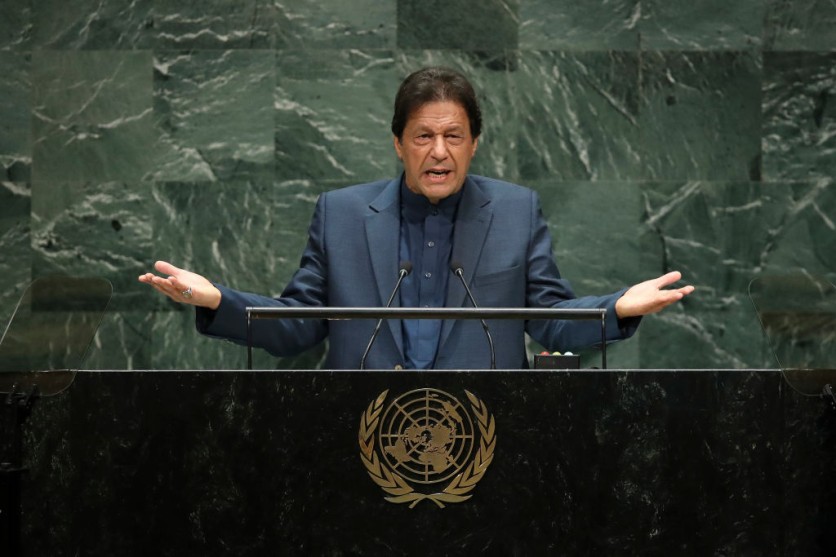The former Prime Minister of Pakistan made headlines by proclaiming victory in the country's recent election through the use of artificially generated speech.
Despite facing restrictions and challenges, Khan employed innovative technology to convey his message to the public, marking a notable intersection of politics and artificial intelligence.

NEW YORK, NY - SEPTEMBER 27: Prime Minister of Pakistan Imran Khan addresses the United Nations General Assembly at UN headquarters on September 27, 2019 in New York City. World leaders from across the globe are gathered at the 74th session of the UN General Assembly, amid crises ranging from climate change to possible conflict between Iran and the United States.
AI-Generated Victory Speech
In a remarkable turn of events, an artificial intelligence-generated voice, purportedly embodying the persona of the imprisoned former Pakistan Prime Minister Imran Khan, boldly declared victory for his political party in Pakistan's recent parliamentary elections.
This unconventional strategy sheds light on the increasingly sophisticated use of AI in political communication. For months preceding the election, Khan's party has been leveraging AI technology to replicate his voice, allowing for seamless communication despite his absence.
The Verge reported that this innovative approach not only highlights the adaptability of AI in navigating complex political landscapes but also underscores the ethical and practical considerations surrounding its deployment in electoral processes.
The election process faced challenges and disruptions, with the vote count delayed due to internet outages. The turbulent conclusion to the election underscored the prevalence of violence and widespread distrust throughout the electoral process.
The use of generative AI in this context presents a dual-edged sword. On one hand, it offers a novel solution for political parties to maintain continuity in messaging and strategy, even in the absence of key figures.
However, Politico reported that it also raises concerns regarding the potential manipulation of public perception and the erosion of trust in democratic processes.
As society grapples with the evolving role of technology in politics, the case of AI-generated political communication serves as a poignant reminder of the need for scrutiny and ethical oversight to ensure the integrity and fairness of electoral systems.
Securing Victory
Khan's Pakistan Tehreek-e-Insaf party (PTI) faced disqualification from participating in the recent Thursday elections. Despite this setback, party members adopted an alternative approach by contesting as independents.
Remarkably, Fortune reported that their efforts proved fruitful, securing a significant victory with 101 out of 266 seats in the National Assembly.
Initial forecasts had hinted at a promising outcome for the Pakistan Muslim League Nawaz party, led by former Prime Minister Nawaz Sharif. However, when the final vote count was tallied, the party's victory fell short, securing only 75 seats.
This election marked another instance where Khan utilized artificial intelligence to engage with his supporters, a strategy previously employed during his incarceration. Notably, in December, Khan delivered impassioned campaign speeches using this innovative method.
Related Article : Pakistan's Former Prime Minister Imran Khan Uses AI-Generated Campaign Amidst Prison Stay

ⓒ 2025 TECHTIMES.com All rights reserved. Do not reproduce without permission.




